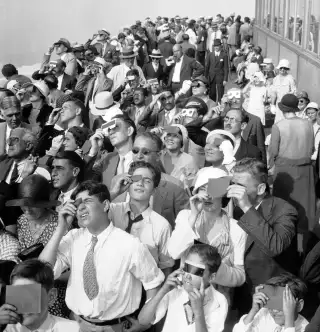Stocks Have Soared 17% on Average After the Last 15 U.S. Solar Eclipses

A total eclipse of the sun feels like kind of an ominous omen. Yet as far as the stock market is concerned, it's great news.
That's according to researchers from investment firm LPL, who looked at what happened to stocks one year after 15 other total solar eclipses visible from the U.S. Over time, investors have turned out to be big winners, with the S&P 500 index up 17% on average during the following 12 months.
Stocks gained a whopping 39.6% after one eclipse in June 1954, and nearly 32% after the moon blotted out the sun in June 1918. (LPL looked at eclipses going back to 1900.) In fact, stocks have declined only twice during the year following a total eclipse: after the 1959 and 1972 events.
So should you be buying shares as darkness falls across parts of the U.S. this afternoon? "Absolutely not," says LPL.
Real factors—like U.S. economic growth, corporate earnings relative to stock prices, and the number of buyers in the market—are what actually drive stock market returns, the brokerage reminds us.
In fact, while 17% may seem like a lot, it's less eye-popping when you remember that in the average year, the S&P 500 is up about 10%.
Don't despair. If the music of the spheres turns out not to be the key to stock market success, there's still one more way the stars could align for you: the upcoming Powerball jackpot.